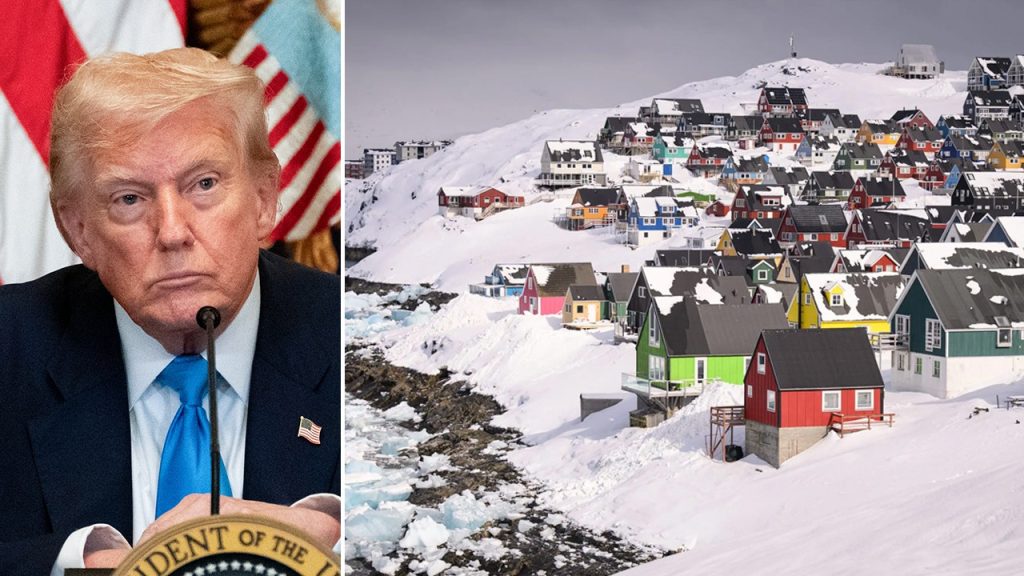U.S. Diplomacy Under Scrutiny: Alleged Covert Operations in Greenland Strain Danish Relations
Denmark’s Foreign Minister Lars Løkke Rasmussen has summoned the top U.S. diplomat in Denmark following troubling intelligence reports about American covert influence operations in Greenland. According to Danish public broadcaster DR, at least three individuals with connections to the Trump administration allegedly conducted these operations, citing unnamed security and government sources. This diplomatic incident has added tension to the relationship between the two longtime allies, with Danish officials expressing concern about foreign interference in their sovereign affairs. “Any attempt to interfere in the internal affairs of the Kingdom will of course be unacceptable,” Rasmussen stated firmly when addressing the situation. The absence of a U.S. ambassador to Denmark meant that American diplomat Mark Stroh, serving as chargé d’affaires, was called to the Foreign Ministry to address these concerns.
The alleged influence operations appear to have been multifaceted and strategically targeted. One individual reportedly compiled a list of U.S.-friendly Greenlanders, collected names of Trump opponents, and encouraged locals to highlight cases that portrayed the Danish government negatively in American media. Two others are suspected of attempting to cultivate relationships with Greenlandic politicians, businesses, and local communities. According to eight sources cited by DR, these efforts seemed designed to weaken the relationship between Denmark and Greenland, potentially creating space for increased American influence in the region. The Danish Security and Intelligence Service has apparently expressed concern that “particularly in the current situation, Greenland is a target for influence campaigns of various kinds,” highlighting the strategic importance of the world’s largest island in geopolitical calculations.
This diplomatic row must be understood within the context of former President Donald Trump’s well-documented interest in acquiring Greenland during his presidency. Trump repeatedly spoke about seeking U.S. jurisdiction over the island territory, which remains an autonomous part of the Danish kingdom. These statements were met with firm rebuttals from both Danish and Greenlandic officials, who unequivocally stated that “Greenland is not for sale.” The recent allegations suggest that despite these public rejections, covert efforts may have continued to advance American interests in the region. The tension over Greenland reflects broader geopolitical competition in the Arctic, where melting ice caps are creating new shipping routes and access to previously unavailable natural resources, drawing attention from global powers including the United States, Russia, and China.
Denmark’s reaction to these allegations reveals the depth of concern about sovereignty and trust between allies. Foreign Minister Rasmussen emphasized that the ties between Denmark and Greenland are “close” and “based on mutual trust,” suggesting that any foreign interference threatens not only international relations but also the internal cohesion of the Danish kingdom. This is not the first time such concerns have been raised. In May, Danish Prime Minister Mette Frederiksen stated plainly that “you cannot spy against an ally” in response to earlier reports about U.S. intelligence gathering in Greenland. The summoning of a diplomat represents a serious diplomatic step, signaling Denmark’s determination to protect its territorial integrity and sovereign relationships.
The strategic importance of Greenland cannot be overstated in understanding this diplomatic tension. With a landmass of over 830,000 square miles, Greenland is positioned at a critical juncture between North America and Europe in the increasingly important Arctic region. The United States already maintains Thule Air Base in northern Greenland, which serves as a vital early warning system for ballistic missile defense. Climate change has increased international interest in the territory, as receding ice reveals potential shipping routes and access to valuable minerals, rare earth elements, and other natural resources. Greenland’s population of around 56,000 people largely self-governs through home rule, though Denmark retains control over foreign affairs and defense policy – precisely the areas where these alleged influence operations appear to have been targeted.
As this diplomatic situation unfolds, both nations face challenging questions about alliance obligations, transparency, and respect for sovereignty. The U.S. embassy in Copenhagen and the government of Greenland have not yet responded to requests for comment, leaving many questions unanswered about the nature and extent of any influence operations. The incident serves as a reminder that even among close allies, national interests can sometimes create friction and competing priorities. How the United States responds to these allegations and works to repair any damage to its relationship with Denmark will be closely watched by allies and adversaries alike. For Denmark and Greenland, the challenge remains balancing their strategic importance to global powers with maintaining their sovereignty and self-determination in an increasingly complex geopolitical landscape where the Arctic has become a new frontier for international competition.


